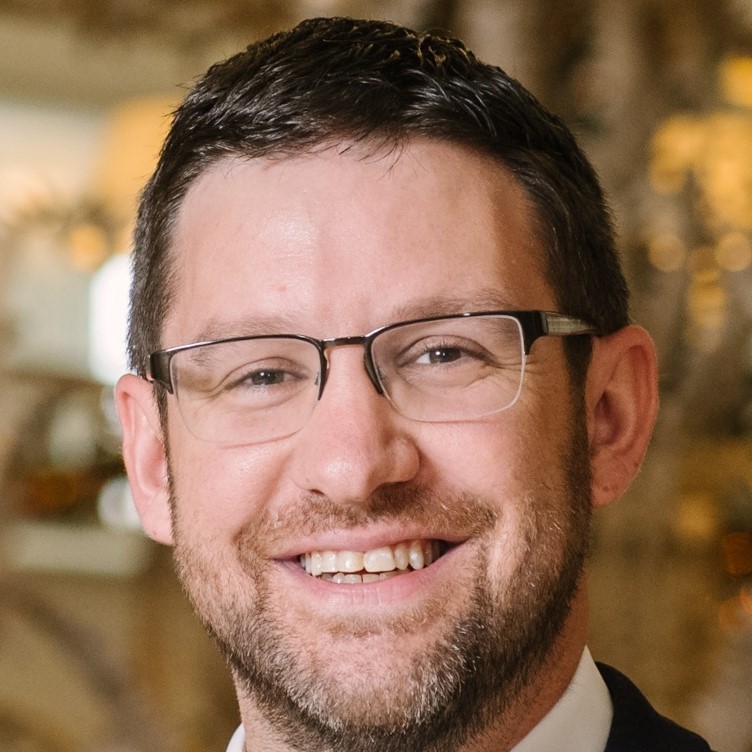Concurrent Sessions V | April 15 | 10:10 AM - 11:00 AM ET
CS 5A | CS 5B | CS 5C | CS 5D | CS 5E (ACUPA)
< Back to Schedule
CS 5A | Facing the Realities of Property Risk Financing: Higher Education's Response to Insurance Market Pressures and FEMA's Public Assistance
Description
As colleges and universities grapple with the challenges of today's commercial property insurance market and shifts in FEMA's Public Assistance, it is essential to adapt strategies for financing and managing property risks. This session will explore the current realities of the hard insurance market, with rising premiums, tightened underwriting standards, and how FEMA's evolving Public Assistance may impact campus recovery and resilience planning. Attendees will gain practical insights into forecasting and mitigating future property risk impacts, learning about both immediate and long-term strategies to protect institutional assets in an increasingly uncertain environment.
Learning Objectives
- Understand the current trends and driving factors in the hardening commercial property insurance market and their implications for colleges and universities.
- Assess changes in FEMA's Public Assistance and their potential impacts on property risk management, recovery funding, and eligibility criteria for campuses.
- Examine strategies to future-proof property risk financing, including effective risk mitigation tactics and alternative funding solutions tailored to the evolving landscape.
Speakers
 Colorado Robertson, Director of Risk Management, Mississippi State University Colorado Robertson, Director of Risk Management, Mississippi State University
Colorado Robertson is the Director of Risk Management at Mississippi State University (MSU), where he leads risk management and safety initiatives. He established MSU's first comprehensive risk management program, adopting entrepreneurial and innovative approaches to address institutional needs. Colorado has also modernized claims and risk financing processes at both MSU and in his previous positions at Louisiana State University (LSU), resulting in substantial savings. As an adjunct instructor, he teaches Enterprise Risk Management and mentors students in the Risk Management and Insurance field. Actively engaged in industry organizations, he most recently served as the Annual Conference Chair for the University Risk Management and Insurance Association. His leadership has been recognized with the 2016 Risk All-Star Award and 2024 Breakout Award.
 Chauncey Fagler, Executive Director & CRO, Florida College System Risk Management Consortium Chauncey Fagler, Executive Director & CRO, Florida College System Risk Management Consortium
Since 2007, Chauncey Fagler has led the Florida College System Risk Management Consortium as its Executive Director & Chief Risk Officer. The Consortium delivers innovative enterprise-wide risk management to support the Florida College System. The Consortium provides a combined risk management program with cost savings through buying power. Member colleges share in program costs and claims, versus bearing costs individually. The Consortium manages the cooperative insurance program for Florida’s 28 public colleges under one statewide plan inclusive of property, workers’ compensation, liability, employee benefit plans and other programs. The Consortium insures over $12.5 billion of property, with 1,800 buildings, 175 campuses, represents 50,000 employees, and 800,000 students. Fourteen (14) of Florida’s 28 public colleges are currently ranked nationally in the 2023 Aspen Prize List.Authorized by the legislature to serve the colleges in 1980, the Consortium has served the colleges ever since. Governed by an Operations Committee, consisting of college presidents, business officers, HR directors, reporting to the Council of Presidents. Fagler joined the Consortium in 2002 and was previously its Associate Director.Prior to 2002, Fagler was the Director of Administrative Services for Structure – now Express for Men – a specialty retail brand division with L Brands. He was Associate Vice President of Purchasing for Ann Taylor and, began his career as an Assistant Store Manager for Lord & Taylor and Kmart.
 Jeb McPherson Jeb McPherson
Bio coming soon.
 Paul Pousson, Managing Director, Arthur J. Gallagher Risk Management Services Paul Pousson, Managing Director, Arthur J. Gallagher Risk Management Services
Paul D. Pousson is a Managing Director of Gallagher's Higher Education Practice. In addition to his leadership activities with the Higher Education Practice, Paul provides brokerage and risk management advisory services to both public and private higher education institutions, including academic medical centers. Prior to joining Gallagher, Paul served as the Associate Director of Risk Management at the University of Texas System (UT System), where he administered the property and casualty, business continuity, emergency management and environmental health and safety programs and services for the 15 academic, research and healthcare institutions comprising the UT System.
Paul also served on URMIA's Board of Directors and was co-chair of the Inter-Association Alliance Committee. In 2013, Paul received URMIA's Distinguished Risk Manager (DRM) designation. He has also served on the Risk & Insurance Management Society's (RIMS) Central Texas Chapter Board of Directors and is Past President of the Texas Campus Safety Association. He holds an Associate in Risk Management designation from the Insurance Institute of America. Paul was also named a Power Broker in 2019 & 2020 by Risk & Insurance magazine.
^ Back to top of page
< Back to Schedule
CS 5B: Bridging Finance Data: The Evolving Partnership Between CFO and Institutional Research/Effective Professionals to Enrollment and Success
Description
The complexities of today's higher education landscape demand a closer, more collaborative relationship between Chief Financial Officers (CFOs) and Institutional Research (IR)/Institutional Effectiveness (IE) professionals. In the face of fluctuating enrollment numbers and the push for measurable student success, institutions are finding that effective solutions are best achieved when finance and data insights are better aligned. This session will delve into the emerging need for a stronger partnership between these roles, highlighting how an integrated approach can drive resource allocation, strategic planning, and decision-making that directly impacts enrollment and student outcomes. Participants will learn how CFOs and IR/IE professionals can create a shared framework to address enrollment trends, develop proactive budgeting strategies, and assess student success initiatives. Through real-world examples, attendees will see how institutions have broken down silos to ensure that financial decisions are backed by rigorous institutional data.
Learning Objectives
- Recognize the essential, collaborative roles of CFOs and IR/IE professionals in tackling enrollment and student success challenges.
- Identify specific strategies to build a cohesive partnership that supports data-informed financial decision-making.
- Apply practical tools and frameworks that align financial planning with IR/IE data insights for enhanced resource allocation and student support.
Speakers
 Kelli Rainey, Senior Director, Student Success Initiatives, NACUBO Kelli Rainey, Senior Director, Student Success Initiatives, NACUBO
Dr. Kelli Rainey is a distinguished leader in higher education, currently serving as the Senior Director for Student Success Initiatives at the National Association of College and University Business Officers (NACUBO). In this role, she is at the forefront of driving initiatives to strategically and sustainably finance equitable student outcomes. With a career spanning over two decades, Dr. Rainey has amassed a wealth of experience and expertise in areas such as institutional effectiveness, data analytics, and student development.
Throughout her career, Dr. Rainey has been a driving force for positive change, consistently leveraging her expertise to contribute to the advancement of the field and the success of students and institutions alike. In her most recent position as a senior-level university administrator, Dr. Rainey demonstrated exceptional strategic leadership. She spearheaded initiatives focused on enhancing student retention and completion, optimizing service delivery, and improving overall organizational effectiveness. Her commitment to advancing higher education is evident in her dedication to developing resources that address critical challenges and opportunities in the field. Dr. Rainey is a highly accomplished academic professional with a doctorate in higher education and organizational change. This academic achievement reflects her deep commitment to advancing the educational landscape and shaping positive outcomes for students.
 Will Miller, Associate Vice President for Continuous Improvement and Institutional Performance, Embry-Riddle Aeronautical University Will Miller, Associate Vice President for Continuous Improvement and Institutional Performance, Embry-Riddle Aeronautical University
A recognized thought leader and practitioner in institutional effectiveness and student success, Dr. Will Miller integrates his experiences as a faculty member, accreditation liaison, director of institutional research, and strategic enrollment management advisor into a comprehensive view of data and information flow on campus. Bringing together research on behavioral economics, organizational behavior, and political psychology, he bridges the gap between theoretical and applied in his efforts to help institutions increase their effectiveness and their students' success.
As Associate Vice President for Continuous Improvement and Institutional Performance at Embry ‘Riddle Aeronautical University, he leverages best practices to help faculty and staff in their quest for continuous improvement and student learning. Through collaboration, responsiveness, and transparency, he helps the campus community design and implement rigorous, high-quality, authentic, and useful assessments for measuring progress and the impact of initiatives. He serves as SACSCOC Liaison and also oversees all disciplinary accreditations (including AABI, ABET, and ACBSP). Prior to coming to Embry ‘Riddle, Will served for four years as Executive Director of Institutional Analytics, Effectiveness, and Strategic Planning at Jacksonville University where he oversaw program development, institutional research, assessment, accreditation, student success efforts, and strategic initiatives.
 Resche Hines, CEO, Trivium BI Resche Hines, CEO, Trivium BI
Dr. Resche Hines is the CEO of Trivium BI and a subject matter expert for the NACUBO grant-funded project. His research expertise is in organizational and leadership coaching, strategic communication, data visualization, implementation, and dissemination, and facilitation of systems to facilitate and enhance data-informed decision making. Additionally, Hines partners with key stakeholders across a diverse group of institutions - including Black colleges and universities - to support the institutionalization of high impact practices, development of enrollment management plans, data governance, stewardship and security structures, and the alignment of planning and budgeting practices. Hines has a Ph.D. in Educational Administration.
^ Back to top of page
< Back to Schedule
CS 5C: Artificial Intelligence – How Does It Apply to Your Operations in Higher Education
Description
Artificial Intelligence (AI) is rapidly transforming the landscape of higher education, presenting new opportunities and challenges for professionals in finance, human resources and academic affairs. This session offers an engaging overview of AI, emphasizing its growing relevance to Higher Education.
Learning Objectives.
- Learn where you can apply AI in your area in Higher Education. Understand the security concerns and potential pushback on use. Become familiar with AI's costs and return on investment.
- Understand the role of data-driven financial models in creating flexible, resilient budgeting processes with increased transparency. Learn about the benefits of a variety of tools. Anaplan for adaptive budget planning, revenue allocation, and improved reporting outputs.
- Gain insights into effective partnerships for institutional change and discover best practices for implementing similar models in other higher education settings.
Speakers
 Michael Stoyanovich, VP, Senior Consultant, Segal Michael Stoyanovich, VP, Senior Consultant, Segal
Michael Stoyanovich is a Vice President and Senior Consultant in Segal’s Administration & Technology Consulting practice. He is locatedin the firm’s San Francisco office and has over 25 years of experiencein the technology and benefits industries, with extensive expertise inemployee benefits plan administration and technology and considerableexperience working with multiemployer plans. Prior to joiningSegal, Stoyanovich served as the chief information and chief operatingofficer at Associated Third Party Administrators (ATPA). Before that, heserved as chief information officer of BeneSys. Stoyanovich has alsoworked for a variety of other organizations in operational, consultingand leadership roles. He speaks at industry events and conferences,including the International Foundation of Employee Benefit Plans annualconferences and the International Foundation’s Trustees and AdministratorsInstitutes. Stoyanovich has authored several articles thathave been published in Benefits & Compensation Digest. Prior to joiningSegal, he served as a member of the Steering Committee forSegal’s annual Multiemployer IT Summit. He earned a Certified DataPrivacy Solutions Engineer (CDPSE) credential, issued by the InformationSystems Audit and Control Association® (ISACA). Stoyanovich receiveda bachelor of arts degree from the University of Michigan and amaster of public administration degree from Michigan State University.
 Bob Shea, Vice Chancellor for Finance & Administration, UNC Greensboro Bob Shea, Vice Chancellor for Finance & Administration, UNC Greensboro
Bob Shea is the University of North Carolina, Greensboro’s Vice Chancellor for Finance and Administration, a member of the chancellor’s senior staff. He is responsible for finance, administration, budget, endowment management, auxiliary enterprises, risk and emergency management, human resources, planning, construction and campus police. UNCG has 18,000 students, a $490 million annual budget, a $430 million endowment and 2,500 employees. Prior to joining the leadership team at UNCG, he served in similar roles at NACUBO, Elon University and the Community College of Rhode Island.
Bob has presented on strategy, leadership and the business model of higher education at many leading symposia both nationally and internationally. Bob has served the many communities he has lived in as a board member and youth coach. He currently serves as a trustee for the State of North Carolina Supplemental Retirement Board with $17 billion assets under management and as chair of the Service Academy Nominating Committee for the Sixth Congressional District in North Carolina.A veteran, Shea retired in 2007 from the US Navy as a captain. He served for twenty-five years with postings around the United States and the world, culminating his naval career with three years on the faculty at the Naval War College. He holds a Master of Business Administration from the College of William and Mary, a Master of Arts in Strategic Studies from the U.S. Naval War College and an undergraduate degree from Massachusetts Maritime Academy.
He and his wife of almost forty years, Tracey Baldwin Shea, make their home in Burlington, NC with their chocolate lab Hobie. Together, they raised two sons, RJ, a graduate of Bowdoin College who is a reinsurance executive in Hamilton, Bermuda and Andrew, a graduate of the US Naval Academy, a former Navy pilot, currently studying for his MBA at the University of Notre Dame. Bob and Tracey enjoy spending time with their three granddaughters and twin grandsons (and their sons and daughters in law).
^ Back to top of page
< Back to Schedule
CS 5D: Preparing for New Realities: A Transparent Approach to Revenue Allocation and Budgeting at University of Tenn HSC
Description
In today's higher education environment, financial resilience is essential. Join the University of Tennessee Health Science Center and Spaulding Ridge as we discuss how Anaplan was used to redesign the institution's budgeting and revenue allocation processes, creating a model that aligns resources with priorities, adapts to financial pressures, and enhances transparency. This session will cover the challenges UTHSC faced with traditional revenue allocation and budgeting methods, which were limited in flexibility and responsiveness to shifts in funding and enrollment. Through a partnership with Spaulding Ridge, UTHSC developed and implemented a cloud-based solution that supports both immediate needs and long-term planning. By incorporating real-time data and user-friendly reporting outputs, the model improves transparency and supports better decision-making at every level. Participants will learn about the budgeting processes in this model, which allow for real-time adjustments, scenario planning, and clearer reporting, helping the institution respond effectively to uncertainty. Additionally, we'll share the outcomes, efficiencies gained, and lessons that can guide other institutions looking to strengthen financial agility and foster transparency in financial planning.
Learning Objectives
- Understand the role of data-driven financial models in creating flexible, resilient budgeting processes with increased transparency.
- Learn about the benefits of cloud-based tools like Anaplan for adaptive budget planning, revenue allocation, and improved reporting outputs.
- Gain insights into effective partnerships for institutional change and discover best practices for implementing similar models in other higher education settings.
Speakers
Michael Ebbs, Vice Chancellor - Finance, University of Tennessee Health Science Center
Bio coming soon.

Russ Owen, Director, Spaulding Ridge
Bio coming soon.
^ Back to top of page
< Back to Schedule
CS 5E (ACUPA): AI Governance: An Overview of Options
Description
This session will be presented by a panel of policy and AI experts coming together to discuss Artificial Intelligence (AI) governance in Higher Education. The panel will discuss various elements to consider when implementing controls around AI at your institution. What should be taken into consideration with Policies? What are examples of effective implementation and monitoring? What resources can be leveraged, and when should your institution consult with other experts?
Learning Objectives
- Enhance Student-Centered Policies - Attendees will better understand how academic and institutional policies can prioritize student needs and reduce barriers for underserved populations.
- Strengthen Communication Channels Between Business Offices and Students - Attendees will learn strategies to build transparent, empathetic communication practices that foster trust and understanding, ensuring students feel supported in navigating the college landscape.
- Align Institutional Resources with Student Equity Goals - Attendees will be equipped to analyze and realign resources to directly support initiatives that address disparities in access, retention, and graduation rates among diverse student groups.
Speakers
 Kelly Cross, Institute Policy Manager, Georgia Institute of Technology Kelly Cross, Institute Policy Manager, Georgia Institute of Technology
Kelly Cross serves as the Institute Policy Manager at the Georgia Institute of Technology. Kelly holds a B.A. in History and a M.S. in Student Affairs Administration in Higher Education, both from Texas A&M University. During her 16 years in higher education administration, Kelly has worked in student organization management, youth programs compliance, ethics and compliance programming, and policy management. Kelly loves Atlanta and in her free-time loves trying all the amazing food in the city.
 Catherine Oja, Director of Compliance, Ethics and Policy, University of Colorado Boulder Catherine Oja, Director of Compliance, Ethics and Policy, University of Colorado Boulder
Catherine Oja is the Director of Compliance, Ethics and Policy at the University of Colorado Boulder. She is responsible for overseeing, coordinating, monitoring, and assessing the efforts of integrity, ethics, policy and compliance programs on the Boulder campus. In this role, she also has direct oversight responsibilities for Youth Protection Compliance and Clery Compliance. Catherine began her career at CU Boulder in 2014 and later she received her Master’s in Studies of Law (MSL) in Compliance and Ethics from the University of Colorado Law School. In her free time Catherine enjoys all that Colorado has to offer, but mostly, hiking, skiing, reading, and solving puzzles.
^ Back to top of page
|

 Colorado Robertson, Director of Risk Management, Mississippi State University
Colorado Robertson, Director of Risk Management, Mississippi State University Chauncey Fagler, Executive Director & CRO, Florida College System Risk Management Consortium
Chauncey Fagler, Executive Director & CRO, Florida College System Risk Management Consortium Jeb McPherson
Jeb McPherson Paul Pousson, Managing Director, Arthur J. Gallagher Risk Management Services
Paul Pousson, Managing Director, Arthur J. Gallagher Risk Management Services Kelli Rainey, Senior Director, Student Success Initiatives, NACUBO
Kelli Rainey, Senior Director, Student Success Initiatives, NACUBO Will Miller, Associate Vice President for Continuous Improvement and Institutional Performance, Embry-Riddle Aeronautical University
Will Miller, Associate Vice President for Continuous Improvement and Institutional Performance, Embry-Riddle Aeronautical University Resche Hines, CEO, Trivium BI
Resche Hines, CEO, Trivium BI Michael Stoyanovich, VP, Senior Consultant, Segal
Michael Stoyanovich, VP, Senior Consultant, Segal Bob Shea, Vice Chancellor for Finance & Administration, UNC Greensboro
Bob Shea, Vice Chancellor for Finance & Administration, UNC Greensboro
 Kelly Cross, Institute Policy Manager, Georgia Institute of Technology
Kelly Cross, Institute Policy Manager, Georgia Institute of Technology  Catherine Oja, Director of Compliance, Ethics and Policy, University of Colorado Boulder
Catherine Oja, Director of Compliance, Ethics and Policy, University of Colorado Boulder 